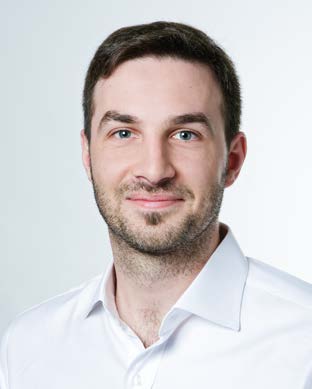


Cognitive diagram understanding and task performance in information systems engineering
Monika Malinova & Jan Mendling


Conceptual models play an important role in information systems engineering (ISE). The concept of a model in the context of ISE is often defined as an abstract mapping from a domain, in such way that it maintains relevant information in order to serve specific goals (Mendling 2008; Stachowiak 1973; Wand and Weber 2002), ranging from ad-hoc information needs (Staples 2014) to supporting a process improvement initiative (Dumas et al. 2018). The models resulting from such a mapping can be represented in different ways. Most of the models created for specification use a diagrammatic representation by capturing information in a visual way.
In this tutorial, we approach diagrams in ISE from a holistic perspective (Malinova and Mendling 2022). First, we establish the ISE process as a context for diagram usage and highlight the information needs of complex ISE tasks. Second, we discuss in how far cognitive processing of diagrams is different from processing other types of representations (e.g. text complemented by image). Third, we integrate insights from various areas of cognitive research into a theoretical cognitive framework called CogniDia which explains the cognitive processing steps involved during understanding and task performance with diagrams. Fourth, we present findings from an extensive survey of criteria for effective cognitive processing of diagrams. Fifth, we illustrate the use of CogniDia for investigating how diagrams support ISE tasks.
Speakers
Monika Malinova is a postdoctoral researcher with the Institute for Information Business at Wirtschaftsuniversität Wien, Austria. She obtained her PhD degree in 2016 from WU Wien. Her PhD thesis was awarded the Dr. Maria Schaumayer award for an excellent dissertation of 2016. In 2015 Monika was awarded the Internationalization Program Scholarship from the Dr. Maria Schaumayer Foundation. Since January 2018 Monika is a Hertha Firnberg Fellow funded by the FWF Austrian Science Fund. The Hertha Firnberg is a program offered to highly qualified female scientists who are working towards a career in universities. Monika’s research interests include business process management, process innovation, and conceptual modeling.
Jan Mendling is a Full Professor with the Institute for Information Business at Wirtschaftsuniversität Wien, Austria. His research interests include business process management and information systems. He has published more than 400 research papers and articles, among others in the MIS Quarterly, Journal of the Association of Information Systems, ACM Transactions on Software Engineering and Methodology, IEEE Transaction on Software Engineering, European Journal of Information Systems, and Decision Support Systems. He is a board member of the Austrian Society for Process Management, one of the founders of the Berliner BPM-Offensive, and member of the IEEE Task Force on Process Mining. He is a co-author of the textbooks Fundamentals of Business Process Management and Wirtschaftsinformatik.
Open Source Software for Information Systems
Anthony I. Wasserman

FOSS gives everyone the freedom to run the program, study and modify the source code, and redistribute copies of both the original version and any modified versions. Thousands of high quality software products and components have been developed and released under approved software licenses. This constantly growing body of high-quality software has driven the growth and acceptance of free and open source software (FOSS). Many FOSS projects have become the leading products in their field, surpassing similar proprietary software.
The rapid growth of FOSS has also transformed the software industry, and has led to new businesses that offer FOSS applications, for which they provide paid support services. As the quality and support for FOSS has grown, some governments and corporations have developed policies that include (or sometimes favor) the use of FOSS in their systems. At the same time, FOSS has continued to grow, playing a major role in such areas as cloud computing and management of large datasets.
This tutorial describes the benefits of FOSS software for organizations, the ways it can be most effectively used within those organizations, and the likely future directions for it.
Speaker
Anthony I. (Tony) Wasserman is a professor of Software Management Practice in the Integrated Innovation Institute (III) and the executive director of the Center for Open Source Investigation at Carnegie Mellon University Silicon Valley (CMU-SV). From 2010-16, he served as a director of the Open Source Initiative (opensource.org).
Previously, Wasserman was vice president of Bluestone Software (subsequently director of Mobile Middleware Labs for Hewlett-Packard’s Middleware Division), where he led the creation of the award-winning Total-e-Mobile toolkit and managed a development team working on software infrastructure for mobile web services. Before and after these positions, he held executive positions for various startups, and continues to advise startups. As founder and CEO of Interactive Development Environments, Inc. (IDE) from 1983-1993, Wasserman made IDE a recognized leader in computer-aided software engineering, with its innovative Software through Pictures (StP) software modeling environment. Prior to starting IDE, he was a professor at U.C. San Francisco and a lecturer in the Computer Science division at U.C. Berkeley. His research areas included software engineering, software development environments, database management, programming languages, and human-computer interaction.
Wasserman has been selected as a Fellow of the Association for Computing Machinery (ACM), a Life Fellow of the Institute of Electrical and Electronic Engineers, and a Fellow of the International Federation of Information Processing (IFIP). He has published more than 60 technical papers, edited ten books, and is the recipient of several awards for his contributions. He was the first recipient of the ACM SIGSOFT Distinguished Service Award, received the 2012 Distinguished Educator Award from the IEEE Technical Council on Software Engineering, and the 2013 Influential Educator Award from ACM SIGSOFT. Wasserman earned his Ph.D. in Computer Sciences from the University of Wisconsin – Madison and his B.A. in Mathematics and Physics from UC Berkeley.